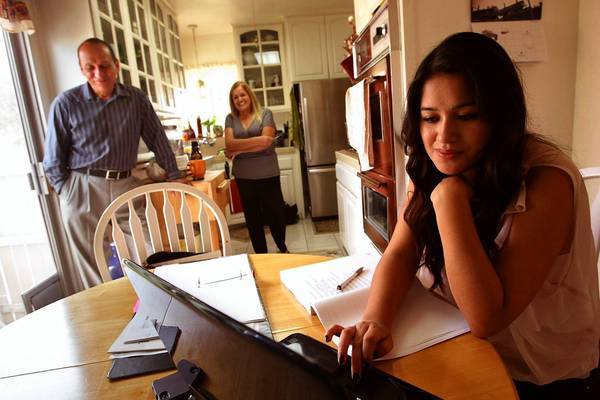 Millions of America’s young people are really struggling financially. Around 30 percent are living with their parents, and many others are coping with stagnant wages, underemployment, and sky-high rent.
Millions of America’s young people are really struggling financially. Around 30 percent are living with their parents, and many others are coping with stagnant wages, underemployment, and sky-high rent.
And then there are those who are doing just great—owning a house, buying a car, and consistently putting money away for retirement.
These, however, are not your run-of-the-mill Millennials. Nope. These Millennials have something very special: rich parents.
These Millennials have help paying their tuition, meaning they graduate in much better financial shape than their peers who have to self-finance college through a mix of jobs, scholarships, and loans. And then, for the very luckiest, they’ll also get some help with a down payment, making homeownership possible, while it remains mostly unattainable for the vast majority of young adults.
To start with, most of those who continue their education after high school have families that are able to help financially. A recent report from the real-estate research company Zillow looked at Federal Reserve Board data on young adults aged 23-34 and found that of the 46 percent of Millennials who pursued post-secondary education (that’s everything from associates degrees to doctorates), about 61 percent received some financial help with their educational expenses from their parents.
And yet, even with this help, the average student with loans at a four-year college graduates with about $26,000 in student-loan debt. Millennials who are lucky enough to have some, or all, of a college tuition’s burden reduced by their parents have a leg up on peers who are saddled with student debt, and they’ll be able to more quickly move out on their own, and maybe even buy their own house.
And that matters a lot in the long run: While many remain skeptical about the real-estate market, homeownership is still the primary way that Americans build wealth. But first-time buyers—a group generally made up of younger adults—have been scarce since the recession. And research indicates it’s not because many of them want to remain renters, but because they just simply can’t save up enough for a down payment, especially not the down payments needed in the expensive urban markets where so many Millennials prefer to live. According to Svenja Gudell, the senior director of economic research at Zillow, “There’s a ton of people out there who want to buy. In our most recent survey in the beginning of the year, we had 5.3 million renters interested in buying over the next year.”
But, because of their student-debt loads, they cannot. “When it comes to taking out a mortgage, they aren’t able to carry that mortgage payment because they have very chunky payments to make to the lenders of their student loans. So that’s certainly holding Millennials back along the way,” Gudell says.
A recent study by the real-estate company Trulia laid it out this way: Imagine an individual who earns $50,000 and is shopping for a $200,000 home (the median U.S. income and house price). This person would like to put 20 percent down. If he or she follows the popular financial advice to save 10 percent of his or her annual pay, it’ll take him or her about eight years to have that down payment ready to go. If that same person has $26,000 of student debt, which means monthly payments of $280 based on a 10-year repayment plan, it’ll take this person closer to nine years.
Source: The Atlantic
